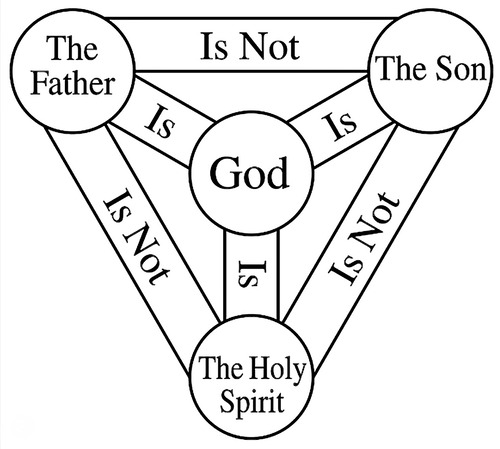Who Says God is Hidden or Distant? He is Just a Prayer Away
The "hiddenness of God" is a concept that has intrigued humanity for centuries. Why does God sometimes seem distant, elusive, or altogether absent? Is there a purpose behind this apparent veil, or is it merely a cosmic mystery? In this exploration into the hiddenness of God, we invite you to consider with us the contrasting experiences of Christians and non-believers, and the profound implications for both…
For the Believer: A Season Without Joy
For Christians, the "hiddenness of God" is a concept that's quite different from what non-Christians understand it to be. For believers, God is anything but hidden—after all, He is Immanuel, "God with us." We have the indwelling Holy Spirit and can experience daily fellowship with our ever-present Lord through prayer and Scripture reading. Our faith rests on the promise God dwells among us, and is actively engaged in our lives.
So when believers speak of God's "hiddenness," we don't mean He is literally hidden or absent from us. More likely, we're describing a season when our intimacy with God seems distant. This could be for reasons such as the following:
- A Loss of Joy: When we feel distant from God, it's often due to unconfessed sin or neglect of spiritual disciplines such as Bible reading and prayer. The joy of fellowship wanes, and we long for restoration. But the remedy lies within reach: confession, repentance, and renewed devotion.
- When God's Answer to Prayer is a "No" or "Wait": God's hiddenness can also manifest when He answers our prayers differently than what we had hoped. Yet, this answer isn't a sign of abandonment. Instead, it's an invitation to trust—to recognize that God's timing and purposes transcend our feeble powers of comprehension.
- Suffering and Bereavement: In seasons of pain, God's hiddenness can feel acute. Yet, even in the darkest valleys, we find solace in knowing God walks beside us. Our faith is tested, but our trust deepens.
Why does God allow His children to go through seasons when He seems away? It's important to understand God's apparent hiddenness is not a sign of His absence or lack of care. Instead, it serves a divine purpose in the life of a believer. These seasons of perceived distance can be a time of spiritual growth, when our faith is tested and refined.
Job, for instance, endured a prolonged season of anguish, when God seemed distant, and even his friends heartlessly tormented him, rather than seeking to console him in his suffering. Job's story reminds us God sometimes allows His children to go through painful trials, to sanctify us, strengthen our faith, and to recreate us in His likeness. Through the anguish, God will ultimately glorify Himself in our lives, as He did in Job's, as our faith emerges refined.
When God feels distant in such seasons, ask yourself: "Who moved?". The remedy is to draw near to God by reading His Word and praying more, and by seeking out fellowship with a community of believers. He remains Immanuel, faithful to nurture our relationship when we return to Him. The absence of joy may be prolonged as it was for Job, but will not be permanent, for God promises to never leave us nor forsake us
For the Non-believer: The Void is an Open Invitation
For unbelievers however, the hiddenness of God points to a deeper, more existential reality. It is the "God-shaped vacuum" (as Blaise Pascal described it) that no pursuit of wealth, power, or pleasure can ultimately satisfy. It's a vacuum only God can fill. Till we come to Him, we have a nagging sense there is something more to existence, some transcendent meaning and purpose we were created for, yet remain separated from.
This void traces back to humanity's original separation from God in the Garden of Eden. When Adam and Eve sinned, they were banished from the intimate Edenic presence of their Creator. The resulting "God-shaped vacuum" became imprinted in the human experience—a profound, gaping hole in our souls that nothing can truly fill but divine reconnection.
The Good News for the God-Hungering Soul
While the Fall created this chasm between God and man, the death of Christ on the cross bridged that divide once and for all. As Jesus drew His last breath, the veil in the temple was miraculously torn in two, symbolizing the removal of the separator between holy God and sinful humanity.
This means the way is open for every person to find ultimate fulfilment by entering into the restored presence of Immanuel. The God-shaped void can finally be filled by calling out to the One who has already paid sin's penalty through His death on the cross.
No amount of man-made religion, self-help, or distraction can resolve this profound spiritual ache. Only the personal presence of Immanuel—God with us—can quench the thirst of the soul longing for true meaning, love, acceptance, and purpose from its Maker.
Remember Jesus' words in John 14:23? "All who love me will do what I say. My Father will love them, and we will come and make our home with each of them (NLT)." The invitation still stands today: "Come to me, all you who are weary and burdened, and I will give you rest" (Matthew 11:28).
Will you bring your spiritual homelessness to Jesus and let Immanuel lead you home? He is the one who can finally fill that profound God-shaped vacuum with the authentic, lasting presence your soul was created for.
Friend, don't let them fool you into thinking God is hidden. They don't know any better. Or perhaps, they're crying out to the wrong god.
Related Reads:
Editor's Pick

Should We Stop Using Male Pronouns for God? Why Do We Say No?
A friend of ours arrived eagerly at his first theology class in seminary. But he quickly discovered something troubling: the [...]

Did Old Testament Law Force Women to Marry their Rapists?
**Editor’s Note: This post is part of our series, ‘Satan’s Lies: Common Deceptions in the Church Today’… Viral misinformation abounds [...]

From Danvers To Nashville: Two Statements, One Biblical Vision
30 years separate the Danvers Statement on Biblical Manhood and Womanhood (1987) and the Nashville Statement on Human Sexuality (2017). [...]

The Nashville Statement: Why Affirm It Despite Media Backlash?
WHY DO REFORMED CHRISTIANS STAND BY THIS STATEMENT ON MARRIAGE AND GENDER? When the Nashville Statement was released in 2017, [...]

Who Is Belial? Solving The 2 Corinthians 6:15 Mystery
Belial: This name from the pages of Scripture chills the soul. Who is this mysterious figure Paul invokes in 2 [...]

Celibacy Or Castration: What Jesus Really Means in Matthew 19:12
One of Scripture's most shocking misinterpretations led theologian Origen to castrate himself in the third century. His tragic mistake? Taking [...]

Philippians 4:13: Did Paul Really Mean We Can Do ALL Things?
"I can do all things through Christ who strengthens me." It's on gym walls, graduation cards, and motivational posters everywhere. [...]

The Ordinary Means of Grace: Why Are They Indispensable?
ORDINARY MEANS FOR EXTRAORDINARY TRANSFORMATION What if God's most powerful work in believers' lives happens through the most ordinary activities? [...]

Is the Bible God’s Word? Or Does It Only Contain God’s Word?
The authority of Scripture stands at the crossroads of modern Christianity. While some argue the Bible merely contains God’s Word [...]

Will We Remember This Life in Heaven? What Isaiah 65:17 Means
"Will I remember my spouse in heaven? My children? Will the joy we shared on earth matter in eternity?" These [...]
SUPPORT US:
Feel the Holy Spirit's gentle nudge to partner with us?
Donate Online:
Account Name: TRUTHS TO DIE FOR FOUNDATION
Account Number: 10243565459
Bank IFSC: IDFB0043391
Bank Name: IDFC FIRST BANK






